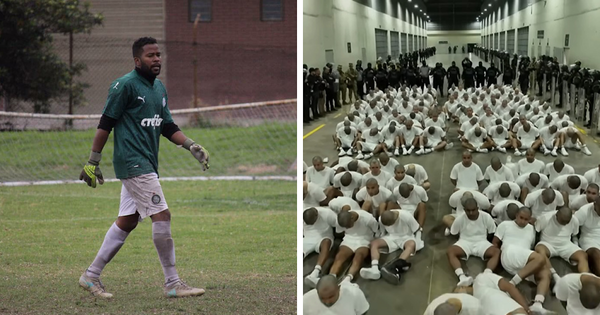In a relationship, financial infidelity causes some of the same problems that cheating does: anger, arguments, loss of trust and, in some cases, divorce.
Keeping store purchases secret, racking up debt without your spouse's knowledge or simply viewing money in starkly different ways can cause major friction.
In fact, money (which many couples avoid talking about) is the No. 1 issue married couples fight about, according to Ramsey Solutions, a financial advisory firm. And money fights are the second leading cause of divorce, behind infidelity.
According to Orion Advisor Solutions' recent "Couples and Money Survey," half (49%) of couples consider dishonesty about money a form of infidelity. One in four couples (27%) say they have money-related disagreements at least monthly. And 32% say money is a stressor in their relationship.
"There is this romantic ideal that money and love are separate matters and that the purity of something like love should never be tainted by talk of money," said Daniel Crosby, chief behavioral officer at Orion.
Financial Infidelity Challenges Couples
So, why does money make couples' blood boil?
"We don't know how to talk about it," said Michael Liersch, a Ph.D. in behavioral science and head of advice and planning for Wells Fargo Wealth and Investment Management.
For most people, money was a taboo topic growing up. "No one really has a framework to discuss it in a productive way," Liersch said. To complicate matters, people typically only talk about money when they are happy or really upset about it. And when people are angry about something, Liersch says, they typically keep it to themselves for a while and the anger festers.
Five Reasons For Financial Infidelity
Like any argument, there are triggers that light the fuse and result in "bickering over the Benjamins," Liersch says.
There are five common triggers. First to set off problems are individual approaches to money. Conflict is bound to happen if spouses and partners think about money in very different ways. That's often the case since we are all "operating with money scripts that we inherited" while growing up, says Crosby. And everyone's money experiences as a kid are different.
It's not just about one spouse being a spender and the other a saver. And problems don't just stem from one partner having Champagne tastes despite the family's beer budget.
Money squabbles often stem from what Liersch dubs "financial parenting" conflicts.
It can be about the display or flaunting of money, what money stands for, or even something as simple as allowing or making a purchase one spouse doesn't agree with.
Indeed, a squabble over money could happen like this: A daughter asks one parent if she can buy a toy. But the answer is no. So she asks the other parent to get it for her, and the other parent says OK.
Another example is a family walking down the boardwalk while on summer vacation. "They walk into a store and one parent says, 'We're not buying anything in here,'" Liersch explained. "And the other parent says, 'What's the big deal?' And they argue in front of the kids."
Money Secrets Couples Keep
The second source of problems is keeping money secrets. Hiding purchases from a spouse or running up a balance on a credit card that your spouse is in the dark about is courting disaster.
"Secrets are always unveiled," said Liersch. "Ultimately, the other spouse ends up finding out."
The downside of financial secrets? "It erodes trust," said Liersch.
In the Orion survey, 25% of respondents admitted to keeping a big purchase secret from a partner and 9% said they have debts their partner is unaware of.
"The reason this is so damaging is that money is a form of power," said Crosby. "When one partner misleads or lies to another partner about their spending, they are using coercion and exercising power unjustly."
Full disclosure and transparency of financial matters is the better way to go if you want to avoid trust issues and not sabotage your relationship.
Financial Infidelity Traces To Communication
Poor communication is the third sticking point. If you don't talk about money or how you view spending and saving with your spouse, friction materializes.
"Some folks are direct in how they communicate about money and others are indirect and find talk of money to be rude, scary or gauche," said Crosby.
The downside of keeping mum about money issues is that couples don't know each other's values and goals.
Fear or worry is the fourth trigger for money problems between couples. Fear about market risk and the economy topped the list of sources of money disagreements in the Orion survey. Thirty-five percent of respondents cited fear. Often, arguments occur because there's a mismatch in anxiety levels about money.
"People vary in how much they worry about or even think about money," said Crosby. "For some, it's a source of almost constant concern and for others it barely crosses their minds."
The fifth reason for financial infidelity is the raging "Save or spend?" debate. Is money best used to enjoy today or secure an uncertain future?
"Both are important," said Crosby. "But when a couple finds themselves at the opposite ends of the poles, there can be friction."
Ways To Stop Fighting About Money
Step one to defusing financial infidelity? Talk about it. Set aside time to discuss money-related issues. "It has to be a regular discussion," said Liersch. Schedule a 15- to 30-minute chat every month or quarter.
It makes sense to build the discussion around a specific event, such as an upcoming vacation, a big purchase, back-to-school shopping or receipt of your quarterly 401(k) statement, Liersch says.
The goal? Focus on shared goals.
"Talk about what you're trying to accomplish, what your budget is and how you're going to go about getting that done," said Liersch.
Defusing Financial Infidelity
Next, be less judgmental. It's vital that you be more aware, curious and open about your own money story and that of your partner, says Crosby. Don't assume that your way of thinking about money is "right," he says.
Talk about the good and bad of each partner's approach to money and how it can possibly help or hurt you. For example, "being generous and community minded is a good thing, until it threatens your own financial security," said Crosby. "(Similarly), saving for tomorrow has obvious upside, but it can also become so obsessive that you may fail to enjoy the here and now."
Third, agree on action steps. Talking is just a first step. Taking concrete action that betters both your financial life and romantic relationship is also vital.
"Agree as a couple on one small action step that moves you (closer to) shared goals based on your conversation about (money)," said Crosby.







